Ledger of losses
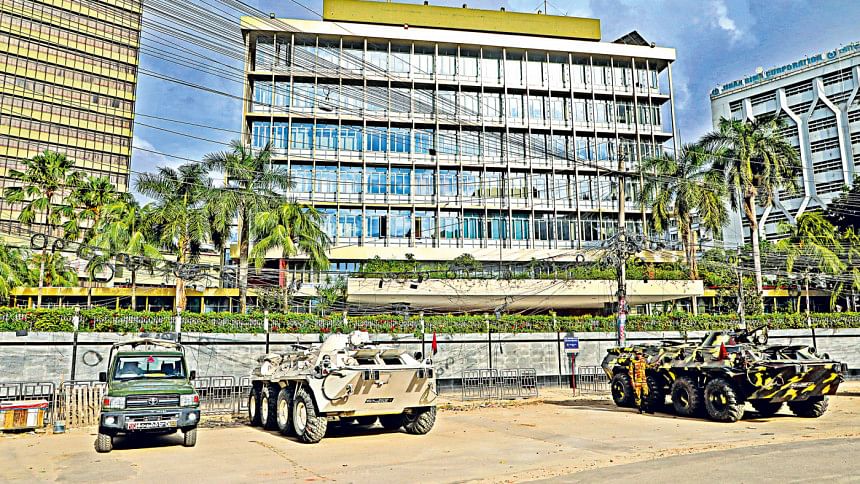
Bangladesh has entered a new chapter in its journey as the wheels of the economy are rolling again, with the country still healing from fresh wounds.
The recent three-week student movement ultimately forced Sheikh Hasina to resign and flee the country, ending her 15-year rule.
The movement began with the students seeking reforms to the quota system for civil service jobs, citing that it was discriminatory.
The Awami League government responded by showing its iron fist in the form of Bangladesh Chhatra League in a bid to end the agitation.
However, tempers only flared further as the ensuing violence led to the deaths of more than 300 people by the time Hasina eventually fled on August 5. As of August 7, The Daily Star confirmed at least 551 deaths.
And while value of the lives lost is immeasurable, the prolonged unrest dealt a huge blow to Bangladesh's roughly $450 billion economy.
According to official estimates, the country suffered losses of over $1 billion daily after economic activities were halted amid the violence and subsequent government curfew between mid-July and early August.
This is because the lack of public safety and an internet outage had forced factories to shut down for nearly a week.
Besides, import-export activities, the supply of agricultural produce and release of goods from ports were all disrupted.
Needless to say, most retail outlets, restaurants, digital commerce and other sectors also suffered significant losses.
Ahsan H Mansur, executive director of the Policy Research Institute of Bangladesh, said if the destruction of property is taken into account, then the economic losses may actually be even higher than the estimate.
Before the second wave of supply chain disruptions started, the Foreign Investors' Chamber of Commerce and Industries (FICCI) estimated Bangladesh's total losses at above $10 billion.
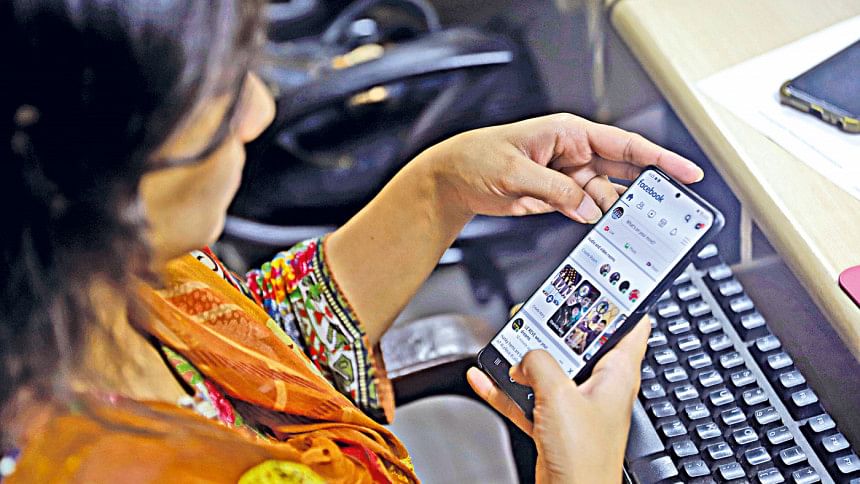
Although it is clear that the losses must have piled on following the second wave of closures, the FICCI is yet to estimate the additional amount.
Similarly, the thousands that were injured and the hundreds who became handicapped or lost their eyesight also sustained tremendous losses.
The economic impact of the turmoil on several sectors is provided below.
GARMENTS SECTOR
The primary textile sector faced losses worth $58.8 million for having to shut down their mills for four days due to the violence and curfew during the first round of protests.
The Bangladesh Textile Mills Association (BTMA) is yet to assess the losses from the second round, when the mills were shuttered amid another spell of violence for four days.
During the first round of protests, the apparel sector lost Tk 6,400 crore as their production units were shut.
The indirect losses are even more, said SM Mannan Kochi, president of the Bangladesh Garment Manufacturers and Exporters Association (BGMEA), during a press conference held at the time.
We were unable to collect inward remittance for five days amid the internet shutdown but the remittance flow became normal when broadband internet was made available
Other than being able to continue production, local apparel exporters suffered for a lack of communication with their international clothing retailers and brands amid the internet blackout.
Many local suppliers could not book work orders from the retailers and brands during the internet outage as July, August and September are considered as the peak seasons for booking work orders for the next summer and spring seasons.
Both local and international retailers and brands also faced difficulties in shipping goods from Chattogram port because of the violence and curfew.
As a result, many apparel suppliers had to use expensive air shipments, faced work order cancellations or offered big discounts to their international buyers.
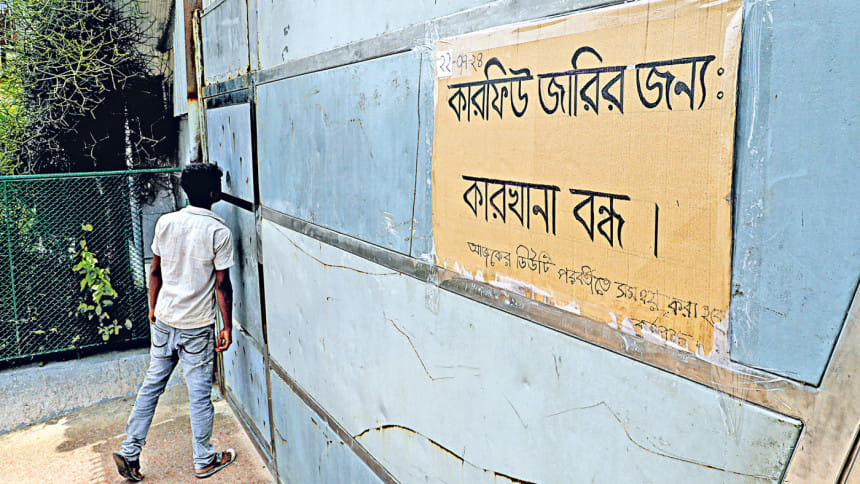
ICT SECTOR
The ICT sector was dealt a huge blow, especially when the government shut down the internet in a bid to quell the protests.
The government blocked mobile internet services on July 17 amid widespread violence over the quota reform protests. A day later, broadband internet was shut down, severely affecting public life and a wide range of economic activities, including utility bill payments, online banking, international communications, digital commerce and the clearance of goods from ports.
Digital commerce entrepreneurs, software makers, F-commerce entrepreneurs, business process outsourcing companies, telecom companies and freelancers were also significantly affected by the government-enforced internet blackout.
The government restored broadband internet on a limited scale on July 23.
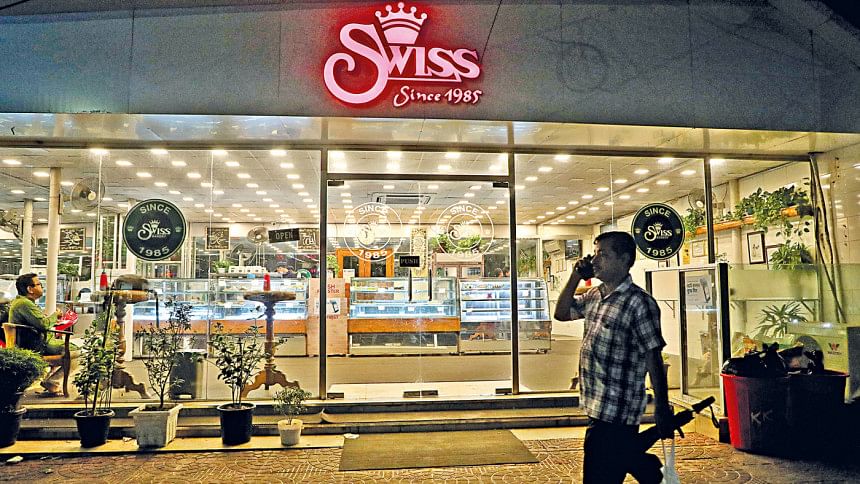
However, social media services like Facebook, TikTok, WhatsApp and YouTube were blocked across the country.
Mobile internet finally resumed on July 28 while social media platforms were unblocked on July 31.
Suddenly, in the morning of August 2, mobile internet users were unable to access their Facebook and Messenger accounts for approximately seven hours.
Again, on August 5, the latest outage occurred, lasting only a few hours, during which former prime minister Sheikh Hasina fled the country.
These moves severely damaged the reputation of many export-oriented IT firms while many internet-based businesses lost significant revenue.
According to the ICT and telecommunications ministry, the sector faced financial losses of Tk 18,000 crore.
However, many in the sector said that figure is exaggerated.
The biggest blow, according to industry insiders, is the damage to the ICT sector's image on the global stage.
Meanwhile, the Bangladesh Association of Software and Information Services (BASIS) said its members incurred Tk 500 crore in losses during the five-day internet blackout.
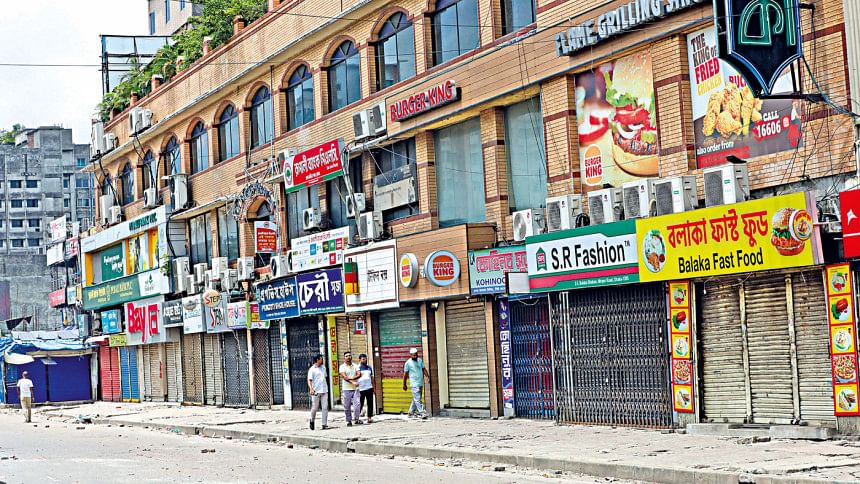
According to the e-Commerce Association of Bangladesh (e-CAB), the sector suffered a loss of approximately Tk 1,700 crore during the 13 days in July when the internet was disrupted.
The e-CAB said about 95 percent of e-commerce transactions remained suspended due to various factors, including a countrywide curfew and security concerns.
The e-CAB has initiated a survey to assess the full extent of the damage.
Ride-hailing companies and e-courier services also took a huge blow from the internet shutdown.
BANKING SECTOR
Industry insiders said all the losses in the banking sector could not be estimated in monetary terms. In a recent meeting with the central bank, bankers said that ATM booths were destroyed and two or three officials died.
Pubali Bank Managing Director Mohammad Ali recently said the internet blackout adversely affected the banking sector as well as banks' profitability.
Bankers and officials of mobile financial service (MFS) providers said their remittance collection remained suspended from midnight of July 18, when the internet shutdown was imposed, to July 23, when broadband services were partially reinstated.
"We were unable to collect inward remittance for five days amid the internet shutdown but the remittance flow became normal when broadband internet was made available," said Selim RF Hussain, managing director of BRAC Bank.
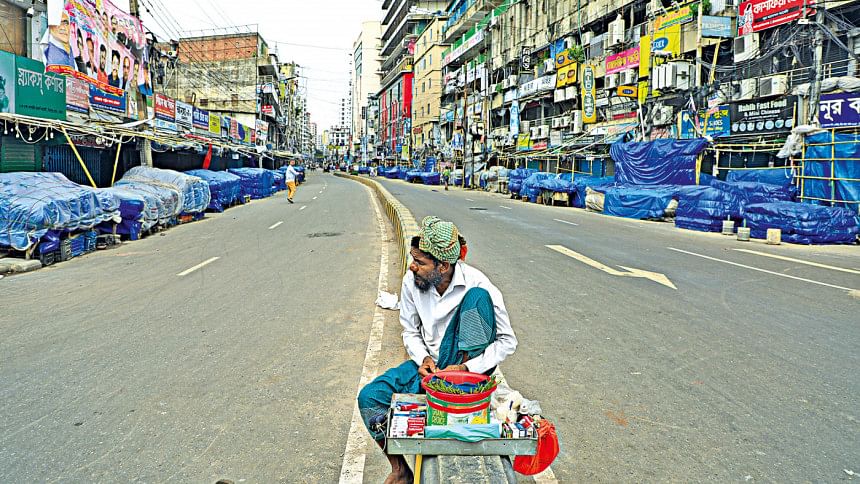
Around $80 million to $100 million in remittances are sent to Bangladesh on a regular day, which was disrupted for the internet shutdown, he added.
Amid the internet shutdown, people were unable to conduct online banking. A lot of ATM booths were also shut while others ran out of cash.
An official of a leading MFS provider said they mobilise Tk 5 crore to Tk 7 crore in remittances on a normal day but it had come down to Tk 80 lakh due to slow internet.
STOCK MARKET
Although trading at the stock market was disrupted due to the countrywide movement, the main problem occurred due to a loss in production of listed firms, said Saiful Islam, president of the DSE Brokers' Association (DBA).
"It has a long-term impact."
Due to the loss in production, their business will be hampered, so shareholders will be the worst sufferers.
On the other hand, financial institutions may face a huge blow after the regime change as many influential and big borrowers may flee.
If banks become weak, it would be very alarming for the market, he added.
INSURANCE SECTOR
A top official of a leading insurance company, who is also a leader of the Bangladesh Insurance Association, said premium income in the life insurance sector dropped 30 percent in the last three weeks compared to the previous three weeks.
Insurance claims in the non-life insurance sector increased by at least 15 percent as people's assets are being vandalised, set ablaze and destroyed.
If the second wave of the movement is considered, the loss will be much higher as the vandalism and arson rose in the last three days.
Sheikh Kabir Hossain, president of the Bangladesh Insurance Association, said the insurance sector has suffered greatly due to the unstable situation.
Many customers did not renew their policies during this period, he said, adding that naturally, no one will open a new life insurance policy in this situation.
Hossain said work is underway to estimate how much the insurance sector has suffered financially during this volatile situation.
Md Jalalul Azim, managing director of Pragati Life Insurance, said: "Our colleagues could not get out of their house as the situation was very unpredictable in all regards."
Whenever there is political unrest in the country, even if people have money in hand, they will not spend. It is natural. Overall, business has suffered greatly, he added.
RETAIL SECTOR
Retailers were severely impacted since they could not open shops. Sometimes, they opened their doors for a short time. A huge number of people are connected with the retail service sector so all of them were affected.
According to Bangladesh Dokan Malik Samity, a platform of shop owners, the sector counted losses of Tk 2,000 crore per day.
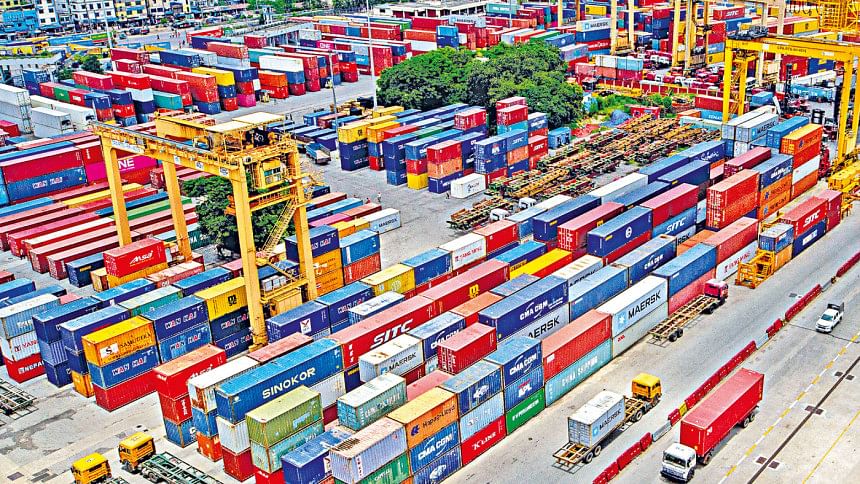
MANUFACTURING SECTOR
Asif Ibrahim, chairman of the Chittagong Stock Exchange, said one of the most important tasks for the nation is to now ensure that economic activities, particularly manufacturing and service sectors, return to business as usual.
"We must assure the countries that we trade with that Bangladesh's private sector is back in business and will fulfil all the commitments to our international customers."
"Now, we want to strongly emphasise to the international business community that the private sector of Bangladesh is resilient. It is the engine of growth of the economy and will continue to be so," he added.
Zahid Hussain, a former lead economist of the World Bank's Dhaka office, said the economy was already in crisis and the recent political turmoil had caused the situation to deteriorate further.
Social equity and justice need to be ensured. Internet connection and other communications should not be disrupted further while education should be resumed with full priority.
Such measures would provide confidence to people and normalise economic activity.
Now, everything should be operational. The metro rail and elevated expressway in Dhaka as well as railways and all other connections should be operational as soon as possible, he added.

 For all latest news, follow The Daily Star's Google News channel.
For all latest news, follow The Daily Star's Google News channel. 






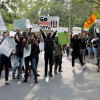

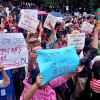



Comments